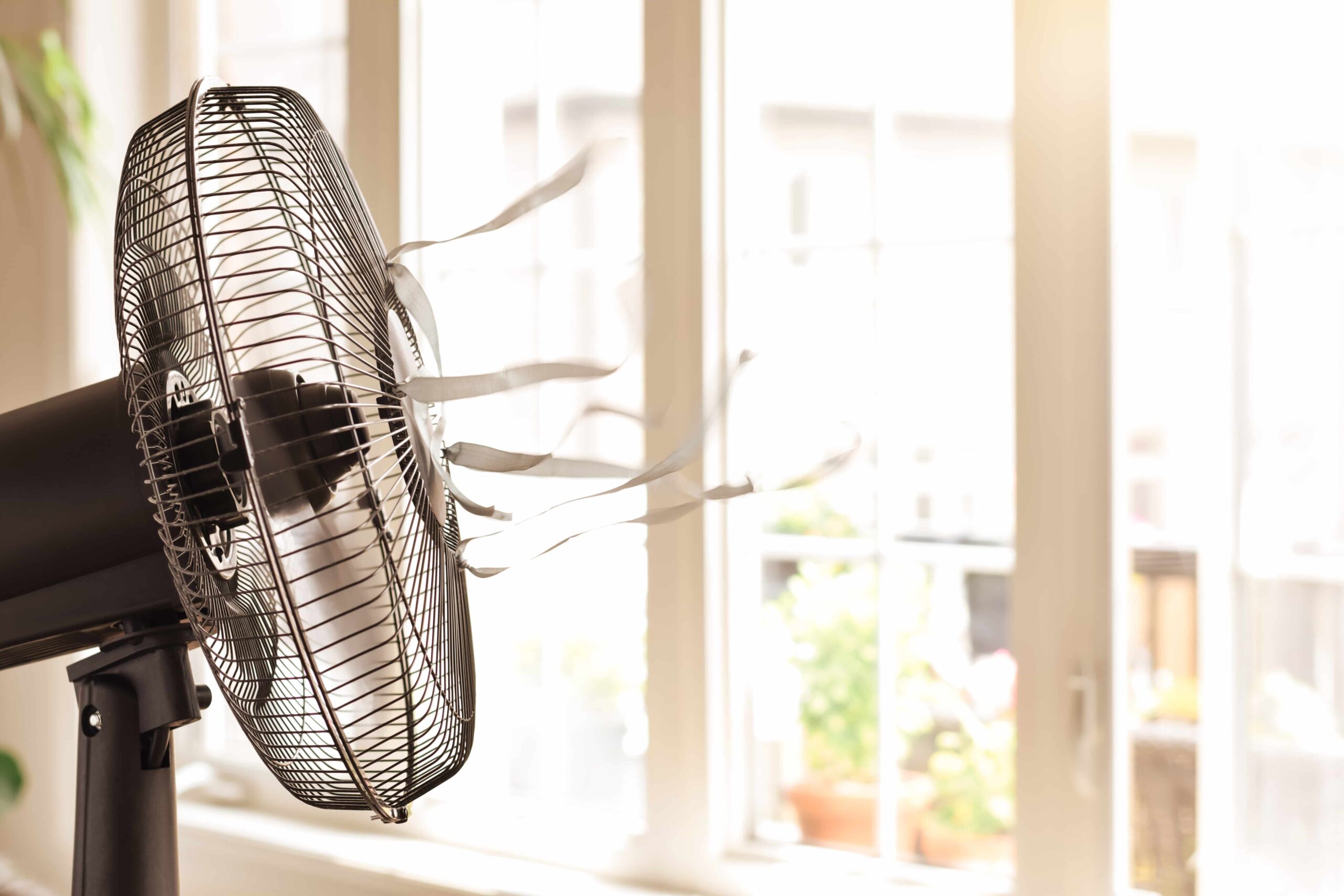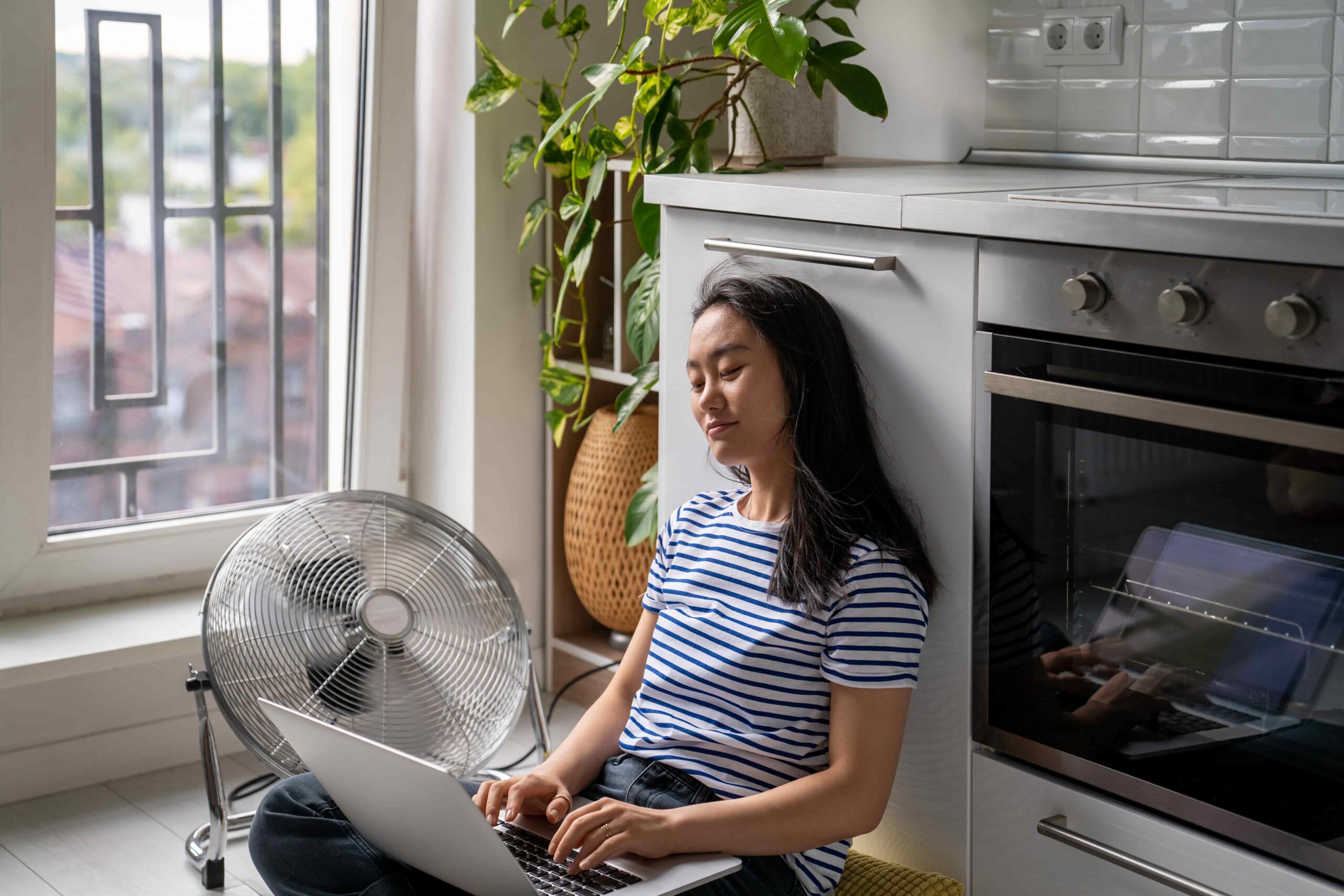Humidity refers to the amount of water vapour in the air. In a country with tropical climates like Singapore, high humidity levels can make the air feel even hotter. This is because the moisture in the air prevents our sweat from evaporating as effectively as it would in drier conditions and traps our body heat. Having our sweat sit on top of our skin is not only a comfort killer but prevents heat transfer and may cause skin irritation in some cases.
Issues from Excess Humidity
In places with humid weather, the excess moisture levels in an indoor environment often lead to problems such as mould growth and musty odours, which reduce the overall indoor air quality and can cause health issues such as respiratory problems or allergic reactions. Excessive humidity can also result in increased electricity bills as it traps heat, leading to a higher reliance on air conditioning and higher costs of living.
Investing in a Dehumidifier
Dehumidifier machines are specifically designed to remove excess moisture from the air by drawing in humid air, cooling it, and then collecting the unwanted moisture in a removable water tank. They are highly effective in reducing indoor humidity levels in enclosed spaces such as bedrooms, living rooms, or basements.
There are various designs with additional features such as humidity sensors, which tell you the level of humidity present in the room. Or humidity control, where the machine pauses when the room reaches the desired level of humidity.
If you have limited space, you could get a small, portable dehumidifier that you can place on your desk or a shelf – but it will only be able to reduce the humidity by a small amount. If your room has excessive moisture levels, it’s recommended to get a large unit that can be placed on the floor in a corner.
Using Air Conditioners
The way air conditioning units work is by drawing in warm air, cooling it, releasing the hot air outdoors, and blowing the cool air back into your room. It also dehumidifies the air during this process if properly sized and set on cool mode or dry mode.
If the air conditioner is too small or not strong enough, it won’t be able to dehumidify or even cool the room adequately. If the air conditioner is too large or too strong, it will cool the room too quickly without dehumidifying it.
Increasing Ventilation
One of the simplest ways to lower humidity is to increase ventilation in your home by opening windows and doors to allow fresh air to circulate and replace the humid air. Cross-ventilation can be achieved by strategically placing fans in different areas of your home.
Additionally, using ceiling fans or standing fans will promote air circulation and help reduce humidity. Be sure to keep air vents open and unobstructed to aid in proper airflow.
Proper ventilation is especially important in rainy seasons to prevent mildew growth and musty smells. Avoid drying clothes indoors, especially in stuffy areas. Hang laundry outside to dry whenever possible or use a vented dryer that exhausts air outside.
Exhaust systems will help remove unwanted odours, moisture, smoke, and other pollutants in the air. Consider installing exhaust fans in bathrooms to expel heat and excess moisture buildup after a hot shower, and bad smells after using the toilet. And consider getting
Prevention
During monsoon seasons, which bring humid climates and torrential rainfall, there are excessive moisture levels that cannot evaporate well. Ensure that there are no leaks in your plumbing or roof, so excess water cannot get into your entire house and cause structural damage.
Deal with dampness issues immediately to prevent the growth of mould and future humidity problems. Homes with wooden elements will be more susceptible to mould because wood that does not have a sealant absorbs water. Use moisture absorbers like silica gel packs or activated charcoal sachets in closets, cabinets, and other areas prone to excess moisture.
Seal cracks and openings to prevent the hot outdoor humid air from entering your home and keep indoor air consistent.
In the event that you find some mould in your home or other issues such as leaks, consider hiring someone with experience to find the source of the issue and fix it immediately.
Dehumidifying Your Home
Having a home with your ideal humidity level is not only important for a comfortable living environment, but is important to avoid issues such as the growth of mould and bad odours. In Singapore, where there are often thundery showers of rainfall, it’s crucial to be aware of any issues in your home and to address them immediately.
If you want to upgrade your home to be more eco-friendly, consider hiring an interior designer to help you on how to make a more efficient home. Even if you don’t want a complete home renovation, they can give you design ideas on how to make your home






